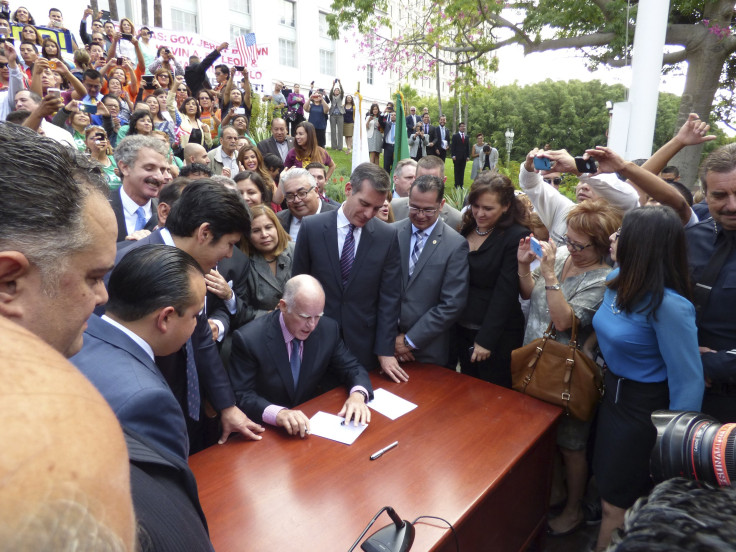
On Saturday, as supporters of immigration reform held rallies in cities across the nation, California Governor Jerry Brown signed Assembly Bill 4, better known as the Trust Act. Under it, local jails can no longer detain immigrants suspected of being in the country illegally for longer than otherwise necessary so that Immigration and Customs Enforcement (ICE) agents can arrive at the jail to take custody of them. It was the second important immigration-related bill to be signed into law by Brown last week, as on Thursday, he approved legislation which made undocumented immigrants eligible to receive driver's licenses.
The signing of the Trust Act serves as a bit of pushback on Secure Communities, a federal program in which local jails send arrestees' fingerprints to the FBI to be matched against that agency's fingerprint records. The FBI then passes those two sets of data on to ICE, which can determine whether or not an individual might be in the country illegally. In the 1,508 counties in 44 states which participate in the program, ICE agents can send a "detainer" request to a local jail asking them to keep an arrestee detained for an extra 48 hours so agents can arrive at the site to interview the suspect. The Trust Act made it illegal for jails to honor those detainers if there was no other reason to keep the individuals detained. Statistics recently released from Immigration and Customs Enforcement indicate that less than 1 in 9 people targeted by these detainers had a record of serious crime, and over 60 percent had no convictions of any sort.
The California governor had vetoed another version of the bill last year, calling it "fatally flawed", because it extended that ban on detentions carried out by local jails on behalf of ICE agents to individuals who had been charged with serious crimes, including child abuse and drug trafficking. Brown asked lawmakers to get a version addressing those serious offenders back to his desk, which they did in a vote in September. In a press release issued on Saturday, the same day he signed the revamped bill, the governor said, "While Washington waffles on immigration, California's forging ahead. I'm not waiting."
Brown also signed seven other immigration-related bills on Saturday. These include measures which would allow undocumented immigrants to become licensed lawyers, make it easier for young US citizens living abroad but who attended secondary school in California or whose parents were deported to be eligible for resident tuition to California state colleges, imposes several restrictions on non-lawyers who charge fees for immigration-related advice, and makes it illegal for employers to threaten to report employees' immigration status.
RELATED: What Would The California Anti-Deportation 'Trust Act' Do?
© 2025 Latin Times. All rights reserved. Do not reproduce without permission.




